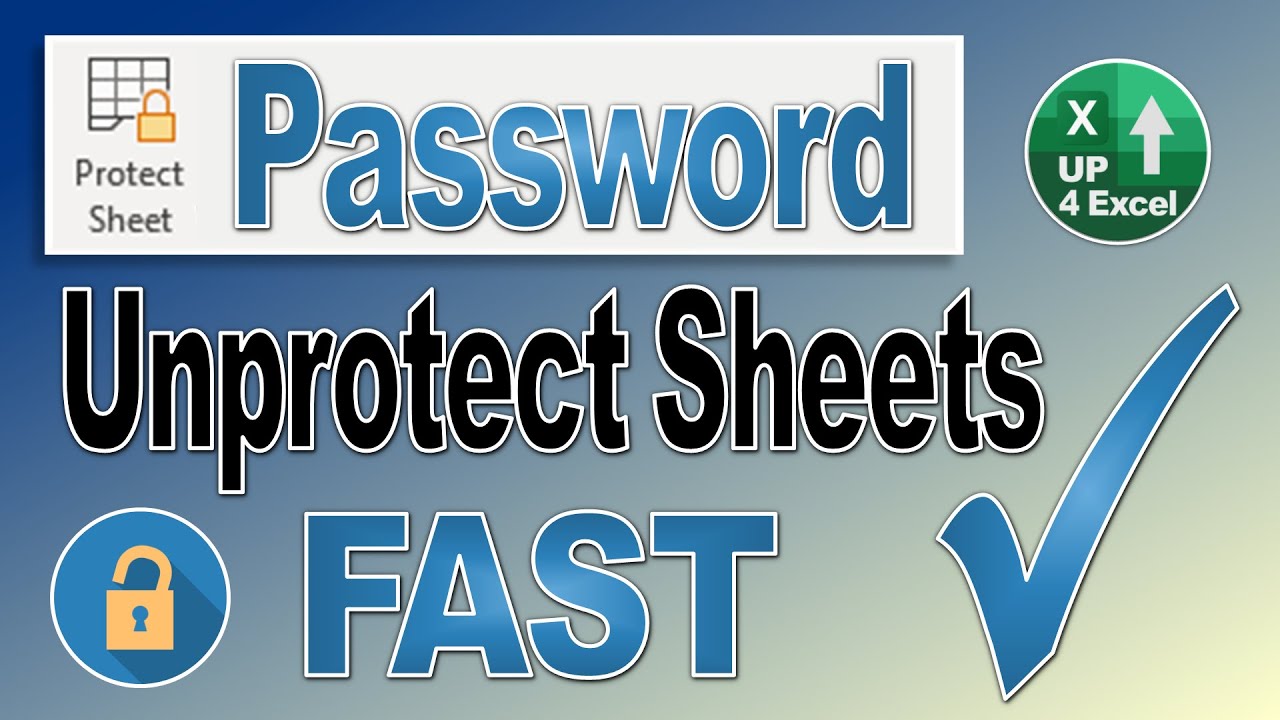3 Ways to Remove Password from Excel Sheets

Unlocking the Secrets of Excel: How to Remove Passwords from Your Sheets
Excel spreadsheets often contain sensitive information that users wish to protect with passwords. However, there come times when the need to remove these passwords arises, whether for collaborative work, regular maintenance, or simply because the password is no longer needed. Here, we explore three effective methods to remove passwords from Excel sheets.
Method 1: Using the Modify Password Feature

If you know the password, the simplest way to remove it is by changing it to a blank password:
- Open the password-protected workbook in Excel.
- Navigate to the ‘File’ tab and select ‘Info’.
- Click on ‘Protect Workbook’, then ‘Encrypt with Password’.
- Enter the current password in the dialog box that appears, and then clear the password field.
- Hit ‘OK’ to remove the password.
Method 2: Breaking the Protection Without a Password

If you have forgotten the password or it was set by someone else, you can use specialized software to remove or bypass the protection:
- Download a reputable third-party tool designed for Excel password removal like PassFab for Excel, Excel Password Recovery, or iSumsoft Excel Password Refixer.
- Follow the software’s instructions:
- Load your password-protected workbook into the software.
- Initiate the recovery process, which might take some time depending on password complexity.
- Once recovered, save the workbook without the password.
Method 3: Editing the Excel File in a Hex Editor

This method is advanced and requires a bit of technical know-how:
- Change the file extension from .xlsx to .zip (remember to enable file extension visibility in your OS).
- Extract the contents of the renamed file with a file compressor like WinRAR or 7-Zip.
- Open the ‘xl’ folder, then the ‘workbook.xml’ file with a hex editor or a simple text editor.
- Look for the
<workbookProtection>tag, which might have attributes likelockStructureorlockWindowsset to1. - Change these attributes to
0to disable the protection, or remove the entire tag. - Save the changes, zip the folder back to an Excel file, and rename the file extension back to .xlsx.
🔒 Note: Modifying Excel files with hex editors can lead to corruption if not done carefully. Backup your files before proceeding.
To conclude, understanding how to remove passwords from Excel sheets is beneficial for many reasons, including ease of sharing and data accessibility. While the modify password feature is the safest and most straightforward option if you know the password, software solutions and hex editing provide alternatives for those who don't have access to the original password. Always ensure you have the necessary permissions before attempting to remove or bypass Excel passwords, and consider the potential risks to data integrity.
Can I recover my Excel password if I’ve forgotten it?

+
Yes, with the right software, you can attempt to recover or remove Excel passwords, though the success depends on the password’s complexity.
Is it legal to remove Excel passwords?

+
Removing passwords from an Excel sheet you own or have permission to access is generally legal, but bypassing security measures you don’t have rights to can be considered illegal.
What should I do if the hex editing method doesn’t work?

+
If hex editing fails, revert to a backup file if available, or consider using password recovery software or manual methods like trying common passwords.
Can these methods cause damage to my Excel file?

+
Yes, especially hex editing or using improper software can lead to data corruption. Always make a backup before attempting any form of password removal.